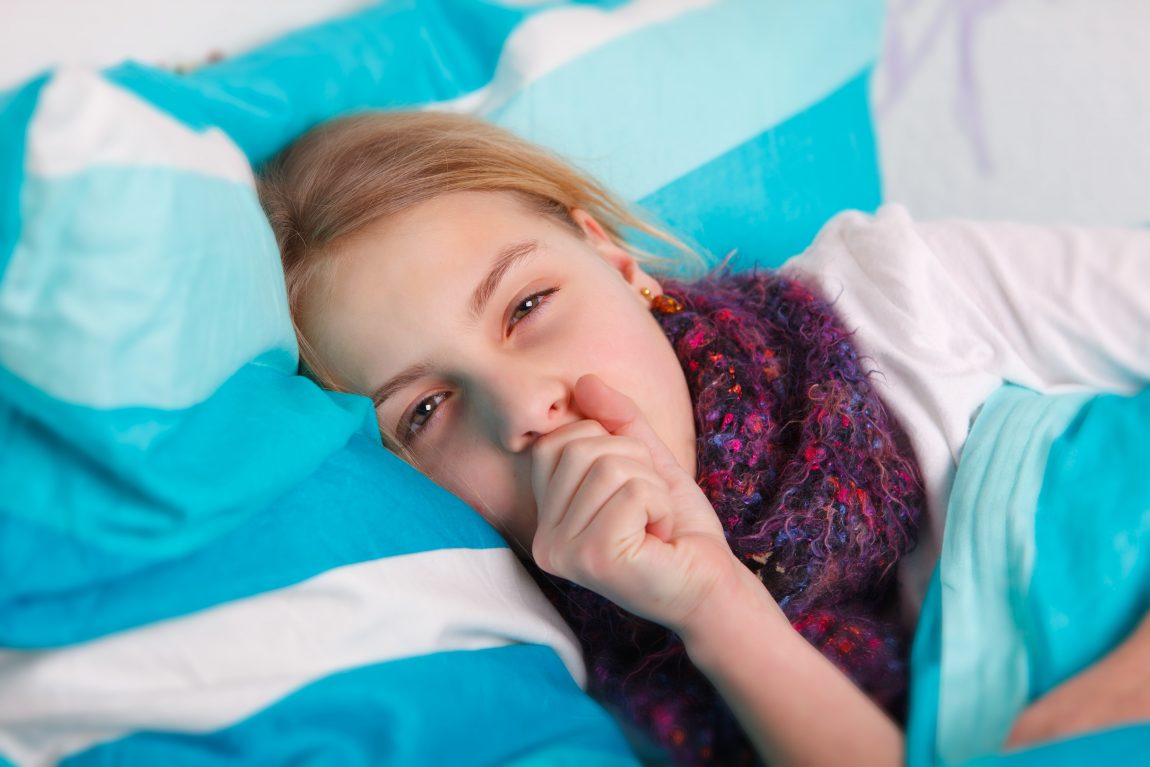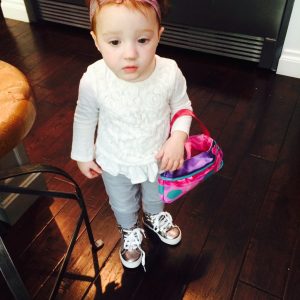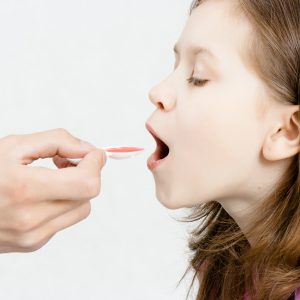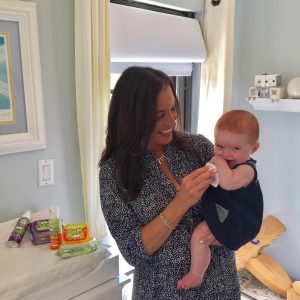
Ask the Pediatrician……How Do I Cure Nighttime Cough?
Question: Hi Dr. Katie, I hope you can help me! The minute my son started school, he began coughing. It has been almost a month of a consistent cough and runny nose. The cough at nighttime is unbearable, it keeps him up all night and then he is exhausted during the day. Why is the cough so much worse at night? What can I do to help him get through the night without coughing?
Answer: As the children start back to school and share their stories of amazing summer trips and camp, they also share their germs, bacteria, and viruses. The most common thing we treat during this season is upper respiratory infection. As a mom and pediatrician, upper respiratory infections are the most difficult and frustrating illness to overcome. The most common complaint I deal with is nighttime cough. For most children, the cough is tolerable during the day but is horrible at night keeping most parents and children up all night long.
What causes nighttime cough? There are a number of reasons that cough seems to get so much worse at night.
Gravity– The biggest reason we cough more at night is simple, gravity! The congestion in your nose drips back and pools in the back of your throat. This stimulates a cough reflex which is our body’s attempt to prevent the mucus from going into our lungs.
A dry environment– Dry air can aggravate an already irritated nose and throat, making your nighttime cough worse.
How do I stop the nighttime cough so my child can sleep? This is an extremely difficult battle to win, but I will give you my best tips that I use for my children and suggest to my parents to help with nighttime cough. Please understand that this will not eliminate nighttime cough, but I promise it will give you a few more hours of sleep. Here is Dr. Katie’s Bedtime Routine to Alleviating Night Cough!
- Honey– Honey has been scientifically proven to help with cough. So if your child is over the age of 1, after dinner give them a luke warm cup of water with buckwheat honey.
- Steam– After the honey, it is time for steam. The best way to accomplish this is by creating your own steam room. Go into your bathroom, shut the door, and put the shower on as hot as it will go. It is imperative that you keep your child away from the water source to prevent burns. Let them play in the bathroom for 15 minutes. The steam breaks up the mucus.
- Saline drops and suction– After the steam is suction. Nose Frida is absolutely the best tool on the market for nasal congestion! I only suggest suctioning your child’s nose before bedtime. Less is more when it comes to nasal suctioning. The nasal bulb suction can cause trauma and inflammation to the nasal cavity, making it more difficult to breath. So my rule is with older children over the age of 1, only at nighttime and for infants at nighttime and, if necessary, before feeding.
- Humidifier– Putting moisture into the air is one of the best ways to treat a congested baby. However, you have to make sure the water is fresh and sterile to prevent bacteria and germs being expelled into the air. Use a cool mist humidifier rather than warm.
- Eucalyptus Oil– A centuries-old natural remedy. You can put 2 drops in the humidifier. Just make sure to clean it out the next morning. I have put a few options of how to use it in my collage. Any of them will work.
- Nasal decongestant– Benadryl is an absolute must in fighting nighttime cough. It eliminates the nasal drip which stimulates the cough reflex. Have your doctor calculate the appropriate dose. I always tell my parents, when you go for your annual check up make sure the nurse calculates and writes down the appropriate doses for Tylenol, Motrin, and Benadryl.
- Elevation– Elevate your child’s head using a pillow. If your child is too young for a pillow, put something under the mattress to raise the side of the mattress where he or she rests their head. It helps to fight against the forces of gravity.
Make sure to do all of these steps before putting your child to sleep.There are many reasons for a child’s cough, some benign but some serious. Always have your child checked by their doctor when they have a cough.




